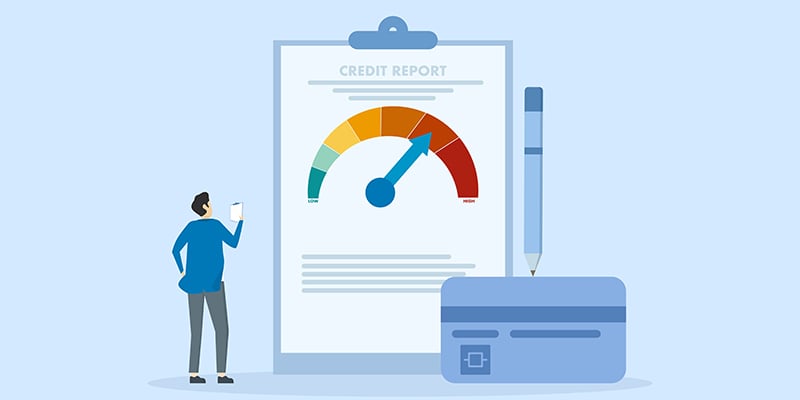
As an employer, it's important to make sure you're hiring the best candidate for the job. A basic background check can verify the candidate's identity, education, prior work experience, and criminal history. To uncover a candidate's level of responsibility for a variety of roles, however, an employer may wish to conduct a credit check.
Here are some of the reasons why an employer would need a credit check on a potential employee.
What a Credit Check Reveals about a Candidate
A credit background check may provide insight into an applicant's financial stability. If they have a history of unpaid debts or financial struggles, it could indicate they have difficulty managing their personal finances. An employer who supplies an employee with a credit line or other company assets would be concerned that they could be a financial liability for the company.
Credit history can also indicate the candidate's level of trustworthiness. A history of not paying their debts on time or accounts sent to collections might indicate they would not be reliable or trustworthy in their job responsibilities - especially if those responsibilities included handling large amounts of cash or customer financial information.
If the position requires a security clearance, a credit check is typically a part of the clearance process. An applicant with a history of financial struggles or unpaid debts could be ineligible for a job that requires a high-security clearance.
What Employers Need from Credit Checks
When a position requires the handling of company assets, such as company credit cards, equipment, or sensitive information, a credit check is often requested by employers. In many regulated industries, such as financial or government jobs, credit checks could be legally required as part of the hiring process.
Credit checks typically reveal:
- Payment history
- Bankruptcies
- Debt-to-income ratio
- Fraud
- Accounts in Collections
Employers will not see the applicant's credit score or information related to unpaid medical bills. The credit check is referred to as a "soft inquiry" and will not affect the applicant's credit score. Credit checks only reveal the most recent seven (7) years of credit history. If the position pays more than $75K per year, ten years of credit history may be considered.
Background Check Rules Still Apply
Credit checks should be conducted only with the applicant's consent, just as any background check requires consent and authorization from a candidate. The FCRA's adverse action procedures also apply so that the candidate has the option to dispute any negative results that would be used against them due to a background credit check.
Additionally, it's important to understand state or local laws around credit checks and salary history. Many states have limited or prohibited the use of credit checks for pre-employment screening.
For those roles and responsibilities that require it, a credit check can be an important tool that offers insight into an applicant's financial stability, trustworthiness, and potential to handle company assets.
